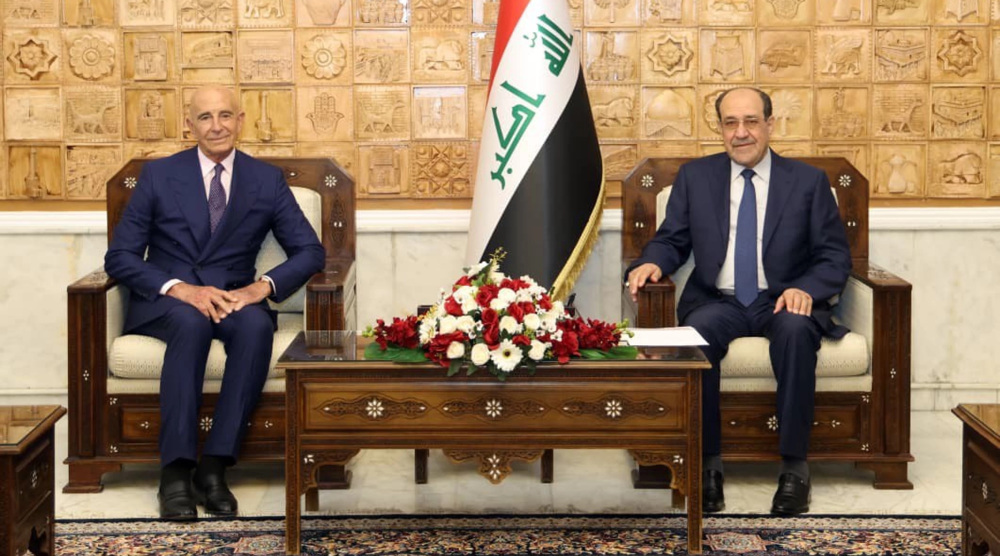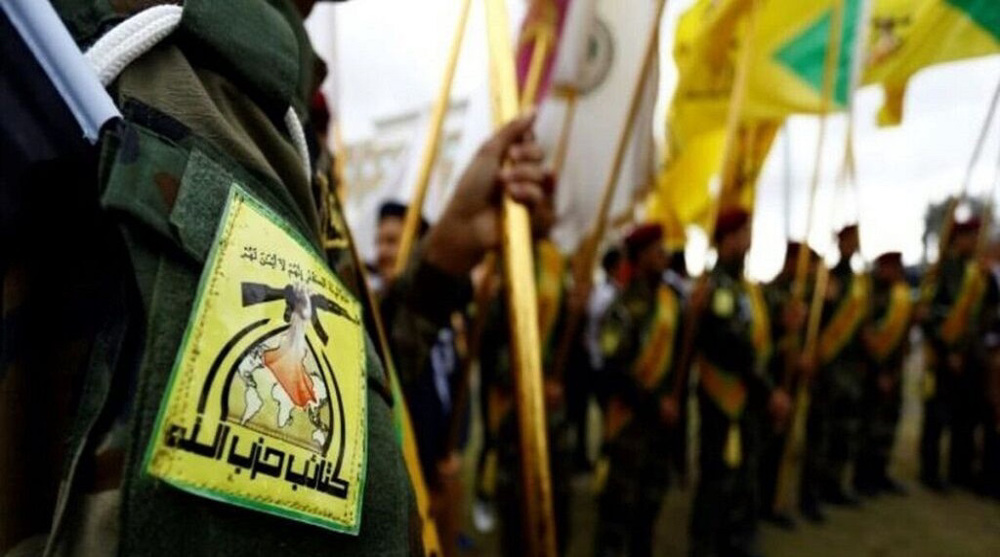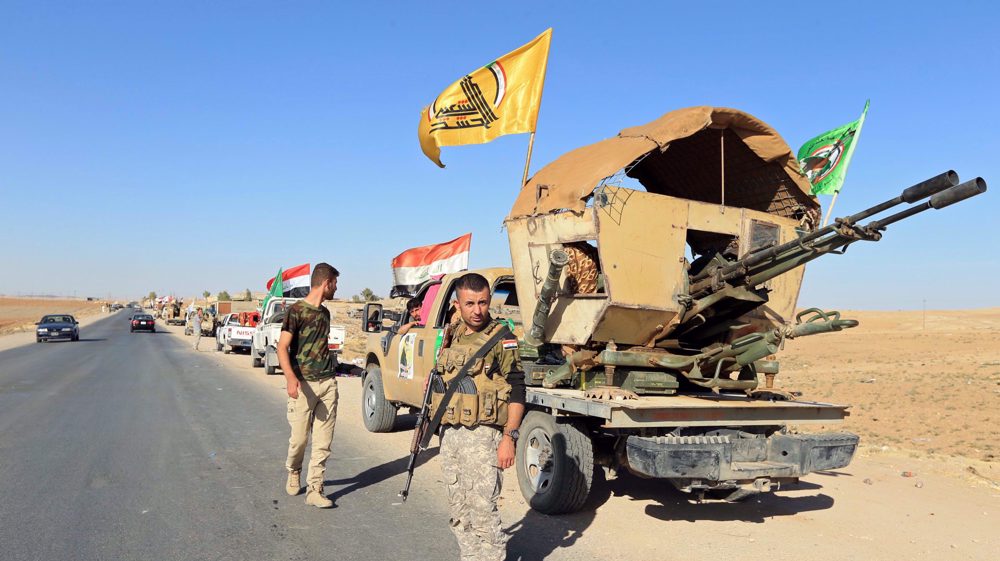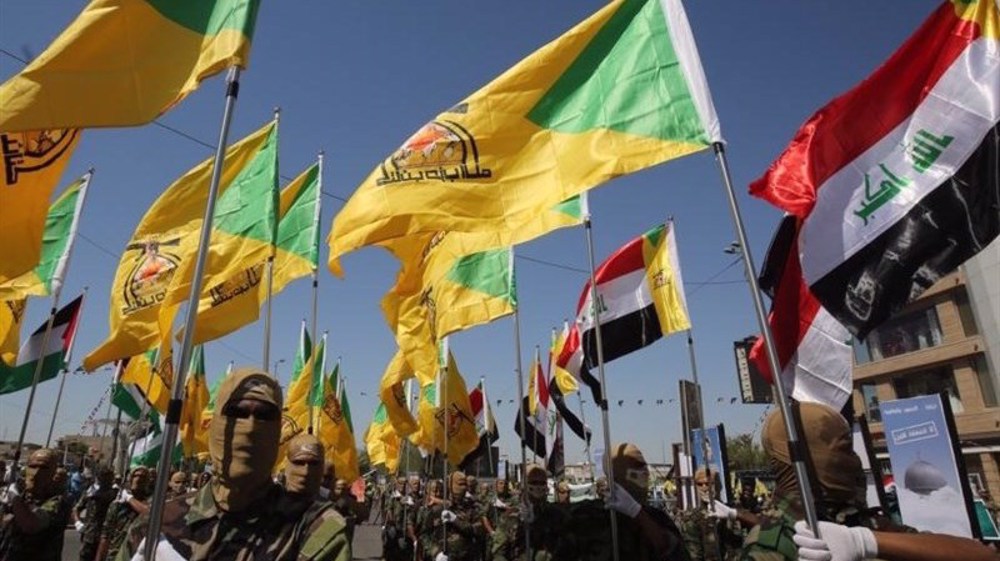Pope Francis meets with Ayatollah Sistani during visit to Iraq
Pope Francis, head of the Roman Catholic Church, has held closed-door talks with Iraq’s prominent Shia cleric Grand Ayatollah Ali al-Sistani on the second day of his visit to the Arab country.
The meeting took place at Ayatollah Sistani’s residence in the holy city of Najaf on Saturday morning.
The office of Ayatollah Sistani said in a statement that he highlighted challenges facing mankind and stressed the role of belief in God and commitment to high moral values in overcoming them.
Ayatollah Sistani cited injustice, oppression, poverty, religious persecution, repression of fundamental freedoms, wars, violence, economic siege and displacement of many people in the region, especially the Palestinians in the occupied territories as some of the major problems which afflict the world.
The cleric touched on the role which religious and spiritual leaders can play in tackling some of these problems.
Ayatollah Sistani said religious leaders have to encourage parties invovled in conflicts, particularly the world powers, to give primacy to rationality over confrontation.
He also stressed the importance of efforts to strengthen peaceful coexistence and solidarity based on mutual respect among the followers of different religions and intellectual groups.
Ayatollah Sistani emphasized that the Christian citizens of Iraq, like all other Iraqis, should live in security and peace and enjoy their fundamental rights.
He referred to the role played by the religious authority in protecting Christians and all those who have suffered from the criminal acts of terrorists over the past years.
After the one-hour meeting, Pope Francis travelled to the Iraqi city of Ur, which is believed to be the birthplace of Prophet Abraham (Peace be upon him).
The pontiff arrived in Iraq on Friday for a three-day trip amid concerns about the coronavirus pandemic. In addition to Ayatollah Sistani, Pope Francis has so far met with Iraqi Prime Minister Mustafa al-Kadhimi and President Barham Salih.
Iraq’s Christian community has seen its numbers drop from nearly 1.5 million to about 250,000, less than 1% of the population over the last two decades.
Iraqi Christians fled the country to escape the chaos and violence that ensued after the US invasion of the country in 2003.
Tens of thousands were also displaced when the Daesh terrorist group overran vast swathes in northern Iraq in 2014, targeting various ethnic and religious groups of the country.
The Takfiri terrorist group was vanquished in December 2017 after a three-year anti-terror military campaign with the crucial support of neighboring Iran.
Daesh’s remnants, though, keep staging sporadic attacks across Iraq, attempting to regroup and unleash a new reign of terror.
The terrorist group has intensified its deadly attacks in Iraq since January 2020, when the US assassinated legendary anti-terror Iranian commander General Qassem Soleimani and his Iraqi trenchmate Abu Mahdi al-Muhandis near Baghdad airport.
Saraya Awliya al-Dam group, part of the Iraqi Popular Mobilization Units better known as Hash al-Sha’ab, announced in a statement that it had stopped all its anti-terror operations during the pope's visit and out of respect for Ayatollah Sistani.
The statement also condemned the assassination of al-Muhandis and General Soleimani who was targeted during an official visit to Iraq.
“We, Arabs, warmly receive our guests. Unlike the United States which betrayed the official guest of Iraq and warrior of Islam, General Soleimani, we will never follow such an approach,” the statement said.
Saraya Awliya al-Dam group also published a poster, featuring General Soleimani's severed hand after the US drone airstrike and the Arabic words, “Does the Pope know this is the hand that brought the ringing of bells back to churches.”

Ahead of the visit, infectious disease experts had expressed concern about Pope Francis’ trip to Iraq, given a sharp rise in coronavirus infections there, a fragile health care system and the unavoidable likelihood that some people would crowd to see him.
Health experts say from a purely epidemiological standpoint, as well as the public health message it sends, the papal trip to Iraq amid a global pandemic is not wise.
Their concerns were reinforced with the news last week that the Vatican ambassador to Iraq, the main point person for the trip who would have escorted Francis to all his appointments, had tested positive for COVID-19 and was self-isolating.
‘Unacceptable cowardice’: Indians slam Modi govt’s silence over US attack on Iranian ship
Trump's ‘peace through strength' stained with blood of innocent kids: Larijani
Qatar's LNG shutdown severely hits global economy: Ex-CEO of Iran's fuel company
Iran deputy FM says no messages exchanged with US since war
105 civilian facilities hit, 21 hospitals damaged in US-Israeli aggression: IRCS
Iran school massacre shows global failure to enforce war crime accountability: Analyst
US-Israel attack on a Tehran hospital targeted newborns, destroyed IVF center
US to 'bitterly regret' torpedoing Iranian warship in intl. waters: Iran FM














 This makes it easy to access the Press TV website
This makes it easy to access the Press TV website